Research Blog & News

Charity run: 470 runners set signs against cancer
Dresden, 03.07.2019
Charity run: 470 runners set signs against cancer
Successful start: At the first charity run of the National Center for Tumor Diseases Dresden (NCT / UCC), around 470 runners started in the Dresden Waldpark on July 2. Alone or as a team, all participants covered a distance of more than 3,100 kilometers. About 10,000 euros in donations for cancer research were made. Thanks to Martina for her active support!
Further information: https://www.nct-dresden.de/das-nctucc-dresden/spenden/benefizlauf.html
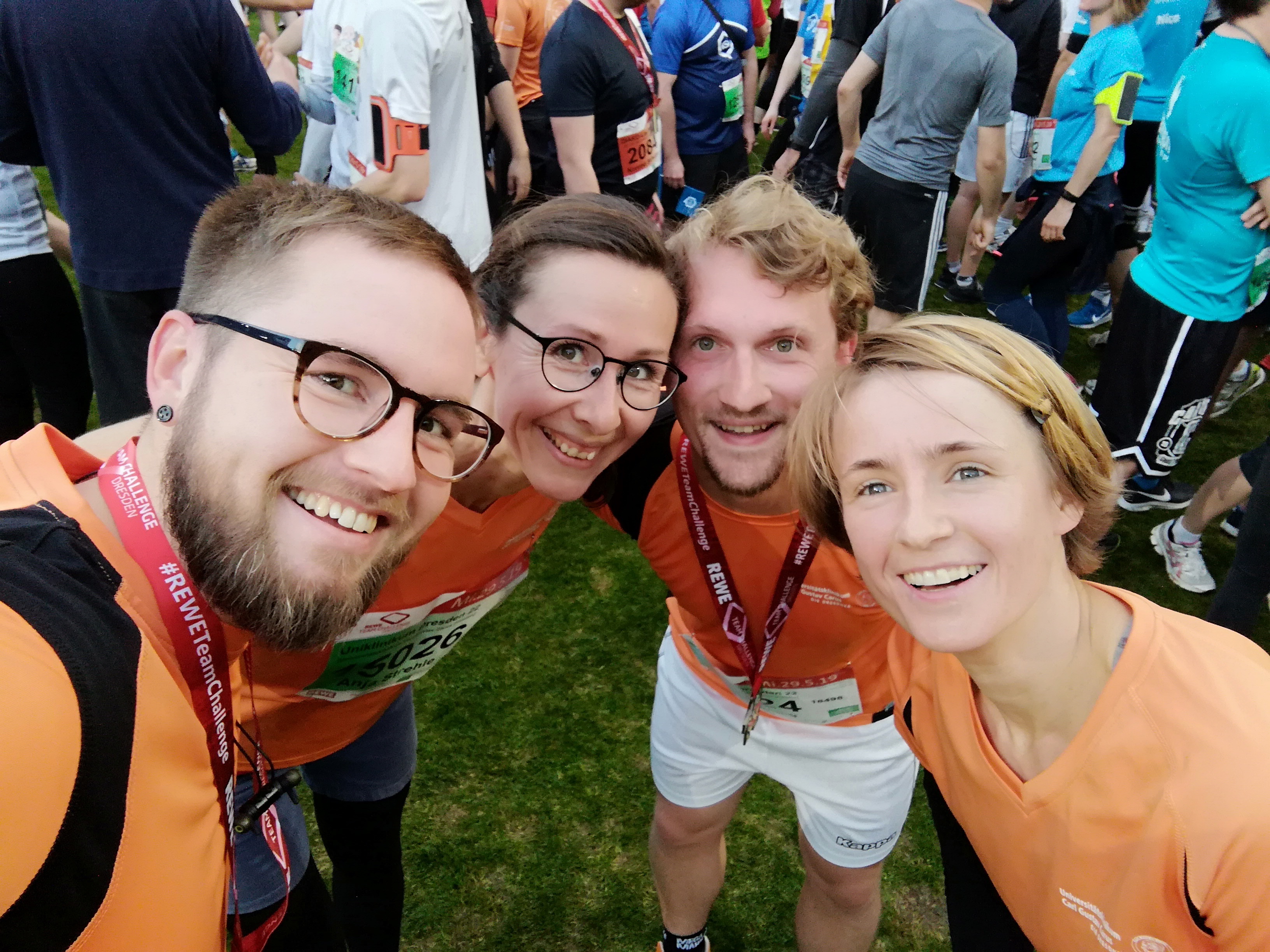
Wir waren bei der Rewe Team Challenge dabei – dem Knochen zuliebe!
Dresden, 31.05.2019
Denn Laufen stärkt die Knochen
Knochen können nur stark werden und stark bleiben, wenn sie regelmäßig kräftig belastet werden. Schon dreimal 15 Laufminuten pro Woche sorgen dafür, dass das Risiko, Osteoporose zu bekommen, um bis zu 40 Prozent sinkt. Mit der Belastung steigt die Knochendichte, dies schützt vor Frakturen und Osteoporose. Knochenverlust und dessen Behandlung ist nur eines der vielen Themen, mit denen sich das Bone Lab beschäftigt.
Ulrike Baschant läuft seit vielen Jahren und trainiert regelmäßig. „Laufen gehört für mich einfach zu einem erfüllten gesunden Leben. Nach jedem Lauf fühle ich mich mental und körperlich lebendig und frisch.” Für Andy Göbel ist „Laufen eine ideale Sportart, frische Luft zu tanken und mental abzuschalten – man fühlt einfach, wie es den ganzen Körper aktiviert und Stress abbaut. Das kann nur gesund sein.” „Im Dynamo-Stadion mit tausenden anderen Sportlern ins Ziel einzulaufen, ist ein unvergleichliches Gefühl“, so Anja Strehle. Tomas Helbing, Koordinator am UniversitätsCentrum für Gesundes Altern, bereitet sich damit auf einen im Juli geplanten 24h-100km Mammut-Marsch bei München vor.
Was ist wohl für unsere vier Laufsportler das nächste Ziel? Hauptsache bewegen! Gelenke und der Stützapparat werden es danken.
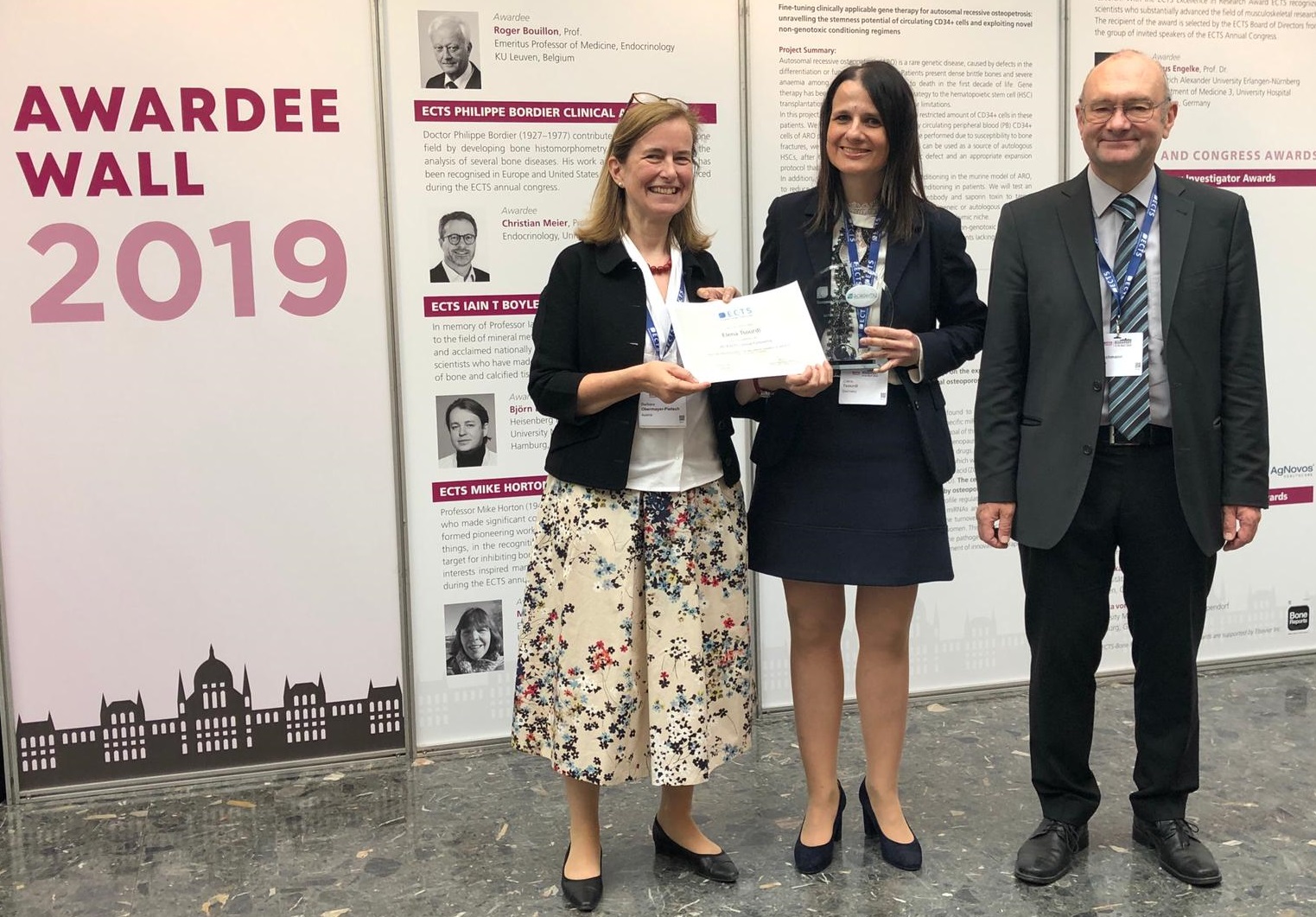
Elena Tsourdi is awarded the Clinical Fellowship 2019
Dresden, 28.05.2019
Elena Tsourdi is ECTS Clinical Fellowship Awardee 2019 having been granted 10.000€ for clinical research in the field of bone disease. With the project ‘The effect of antiresorptive and osteoanabolic drugs on the expression of bone-specific microRNAs in women with postmenopausal osteoporosis’ she and her collaborators plan to test whether bone-specific miRNAs are differently regulated by osteoporosis therapeutics.
MicroRNAs (miRNAs) regulate various cell functions by inhibiting target gene expression, and bone-specific miRNAs can be potential diagnostic tools in postmenopausal osteoporosis. The main goal of this project is to identify miRNAs which are involved in the pathogenesis of postmenopausal bone loss and to examine their regulation by antiresorptive and osteoanabolic drugs. We will analyse sera from an established cohort of postmenopausal women which were either treatment-naïve, or had received 1-2 yearly i.v. infusions of 5 mg zoledronic acid (ZOL), or had completed 24 months of daily s.c. injections of 20 µg teriparatide (TPTD). The central hypothesis is that bone-specific miRNAs are differently regulated by osteoporosis therapeutics. In order to test the hypothesis we will analyse miRNA-profile regulation by osteoporosis therapeutics and seek to identify correlations between miRNAs and changes in bone mineral density, serum concentrations of established bone turnover markers and myostatin in treatment-naïve and pretreated postmenopausal women. This characterization of the miRNA-profile will lead to a better understanding of the pathogenesis of postmenopausal osteoporosis and may thus contribute to the development of innovative therapeutic approaches.

Franziska Lademann wins this year’s Von Recklinghausen Prize
Dresden, 21.03.2019
The German Society for Endocrinology (DGE) supports and awards outstanding achievements in basic and clinical research . The Von Recklinghausen Award honors outstanding original scientific work in the field of calcium regulating hormones and bone metabolism. Franziska Lademann won this year’s award with her work on “Lack of the thyroid hormone transporter MCT8 in osteoblast and osteoclast progenitors increases trabecular bone in male mice”! Thyroid hormones are important for maintaining a healthy bone. Their transport into target cells is mediated by transporter proteins, such as the monocarboxylate transporter 8 (Mct8). Targeted knockdown of Mct8 gene expression in bone-building osteoblasts as well as bone-degrading osteoclasts in male mice led to an increase in trabecular bone mass. Both murine models suggest that MCT8 plays an important role in bone metabolism. Further experiments are needed to reveal the exact cellular mechanisms and processes behind it. The award ceremony took place at the annual conference of the German Society of Endocrinology on 21.03.2019 in Göttingen. Congratulations!
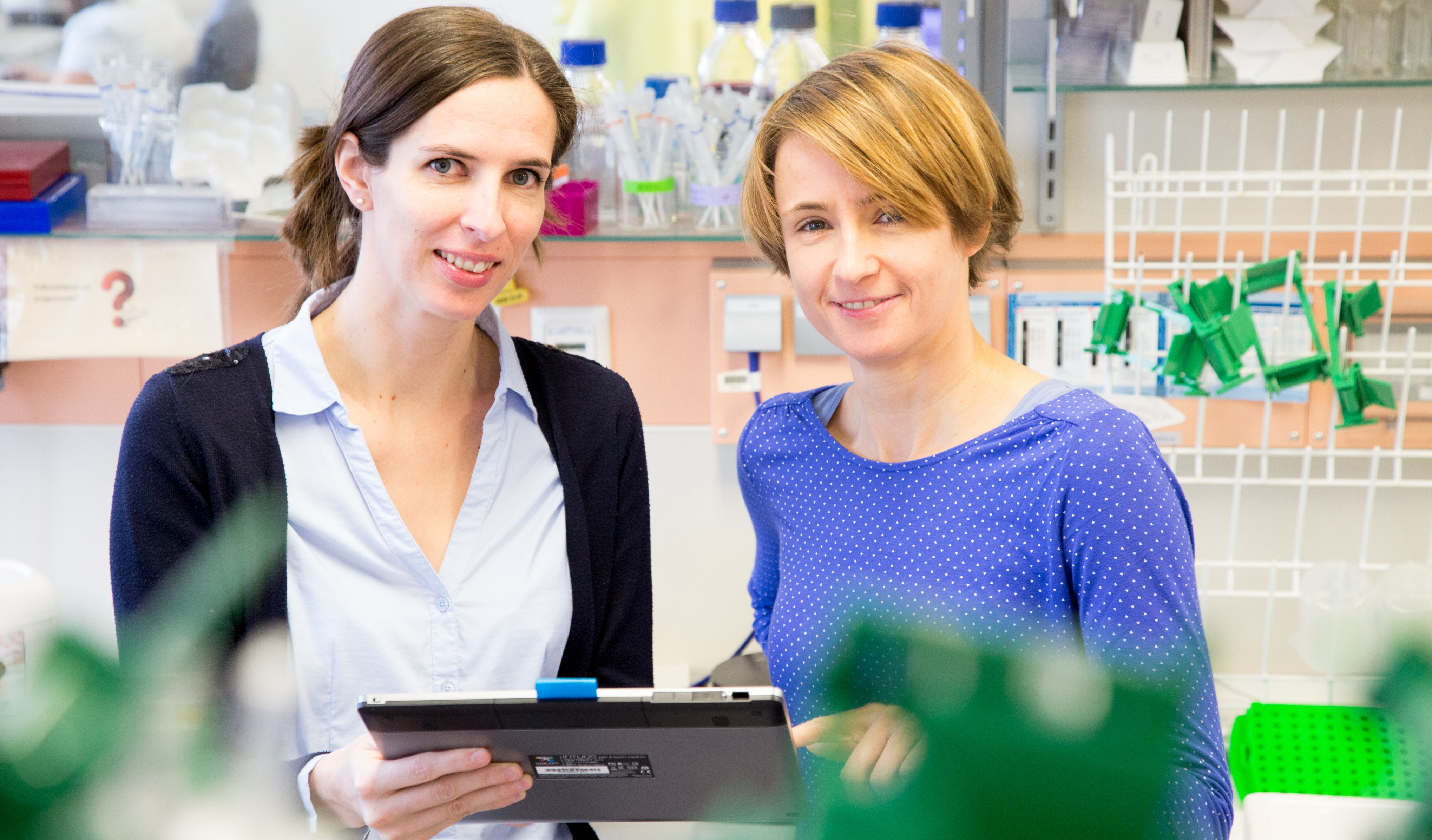
Just in time for the “Tag der Seltenen Erkrankungen” our researchers discover protein for more mobility
Dresden, 21.02.2019
Only a few know the rare bone disease FOP: as in a nightmare, muscles and connective tissue are transformed into bone – and those affected are literally walled up alive. As a result, these patients become prisoners of their own body. Scientists of the Faculty of Medicine Carl Gustav Carus at the TU Dresden have now discovered a protein that inhibits excessive bone formation in FOP. In the future, this could be a therapeutic approach. The discovery is patented and the results of the study were published in the journal “Nature Metabolism”.
A total of four million children and adults in Germany are affected by one of more than 6,000 rare diseases. Many of these diseases are still rather unexplored, and there is still no effective therapy for the majority of these diseases. Take Fibrodysplasia Ossificans Progressiva (FOP). For patients, the diagnosis means the progressive ossification of soft tissue and muscles. Healthy muscles, ligaments and tendons transform into bones – all in the wrong place – resulting in stiffness and permanent immobility as if you were permanently trapped in a cast. The growth of bone-like structures where usually no bone is (ectopic ossification) may occur without warning or is triggered by a slight bump. The underlying cause is a gene defect that leads to a defective building plan for the ACVR1 receptor.
Scientists of the Bone Lab of the University Hospital at the TU Dresden have now discovered a protein that links two apparently unrelated systems. Transferrin receptor-2 (Tfr2), responsible for iron metabolism, was discovered as a new component in bone metabolism. Tfr2 binds to so-called bone morphogenetic proteins (BMPs), which are responsible for the mineralization of bone. Together with an interdisciplinary team of international researchers, the Bone Lab has now discovered that the binding region of Tfr2 can also be used to neutralize BMPs to prevent misplaced bone formation. Professor Martina Rauner and her colleagues were surprised: “When we saw how potent the binding region of Tfr2 inhibited the undesired soft tissue ossification in the animal model, we realized that this discovery may have the potential for clinical development.” Martina Rauner, biotechnologist and scientific director of the “Bone Lab” has dedicated her career to the study of bone diseases. It took years of intensive collaboration to decipher the therapeutic potential.
So far, there is no suitable therapy for the approximately 700 patients worldwide and the 30 people affected by FOP in Germany. However, now there is new hope, states Dr Ulrike Baschant: “Kymab, a therapeutic antibody company in Cambridge, will promote the clinical development of Tfr2 based on our discovery in Dresden.” This landmark discovery is significant not only for patients with FOP, but also for those with more common skeletal disorders, such as heterotopic ossification, a disease that occurs after hip replacement surgery or major trauma. The two main authors, Martina Rauner and Ulrike Baschant, report about their finding in the journal Nature Metabolism. The discovery of the protein was the result of international cooperation for many years, amongst others with scientists from the University of Torino in Italy. With the help of a dozen scientists, they worked in the lab to solve another puzzle of science. Martina Rauner is happy that the “newly created knowledge may serve novel therapies that could improve the lives of children and adults with bone diseases”. Ulrike Baschant adds, “It is a decisive step towards regaining physical independence and personal freedom!”
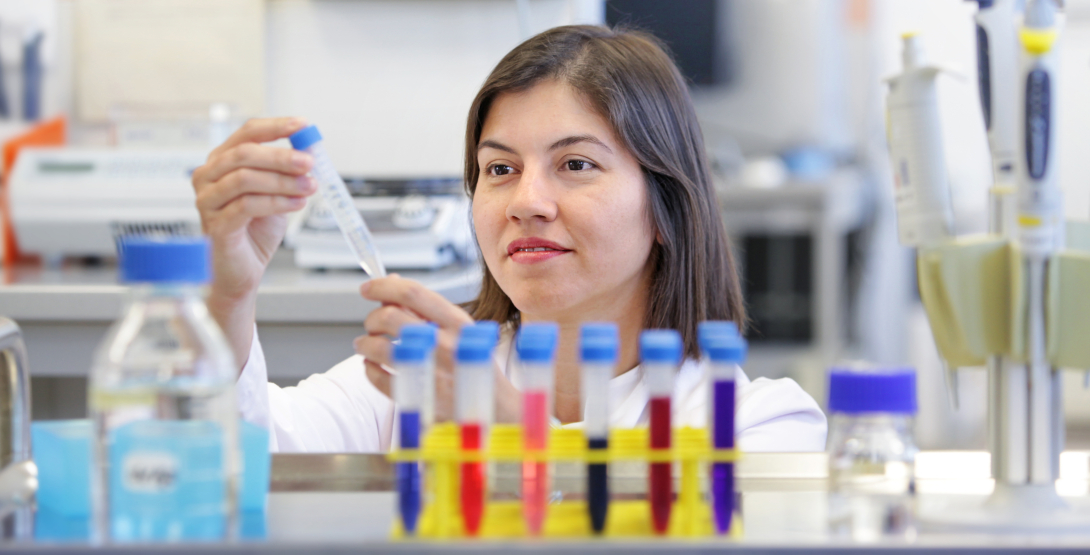
Critical, vibrant, colourful – our Bone Lab is like Brazilian carnival
Dresden, 23.01.2019
Prof. Paula Goes Dutra and Caio de Santiago Dutra from Brazil enrich our lab!
How did I get to this field of research?
I initiated in this research field following the research line of my former supervisor.
Why did you chose the bone lab?
I chose the bone lab because of my interest on Wnt signaling pathway. I was fascinated by the papers published by Martina Rauner. In addition, I would like to come to Germany, since this country has been an example of investment in research. The University that I work at in Brazil (Federal University of Ceara) holds international cooperation’s and exchange programmes with Germany and specifically the TU Dresden.
What am I doing right now?
I’m here as a visiting researcher doing a sabbatical. I’m establishing here the model of periodontitis on mice, which I have previous experience, in order to open a new research line at Bone Lab, meanwhile I’ve improved by research skills learning new lab methodologies.
Why am I doing what I am doing?
I decided to do this because it is a way to improve my research skills as well as my English skills. It is also an opportunity that the Brazilian government offers to the professors, to go abroad making connections and establishing collaborations in order to improve the Brazilian research making it more international. However, the time here is not only important professionally but also personally.
What is fascinating about my work?
I love the idea that I can contribute somehow to the better understanding of periodontitis – a very important oral disease, and also to understand the role of the amazing immune system on the process of bone loss.
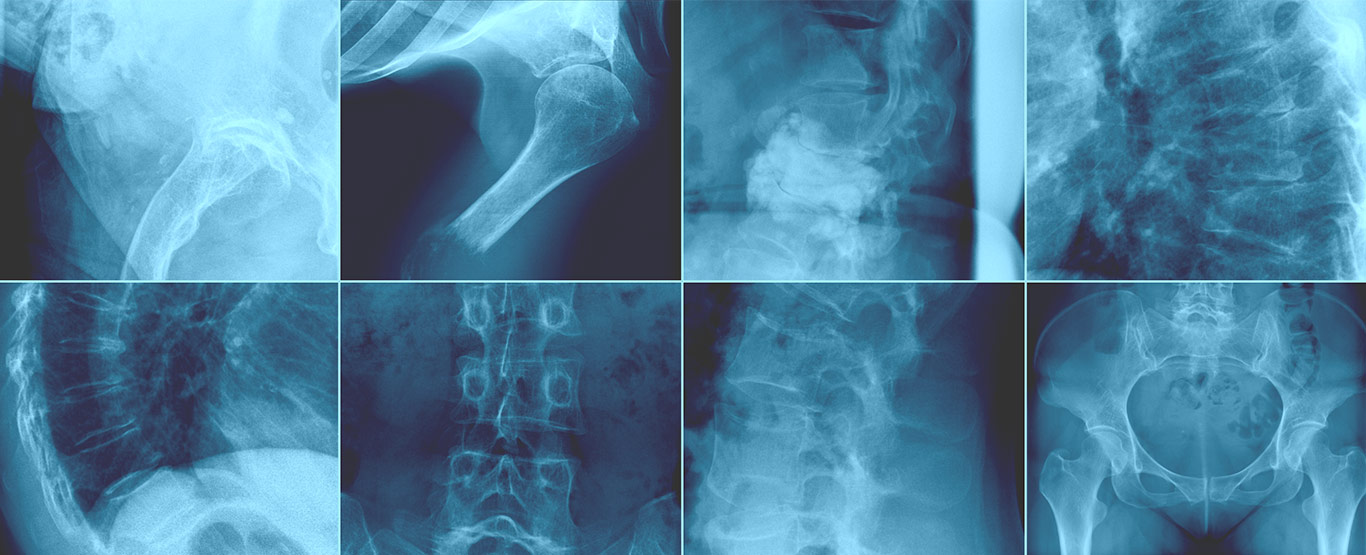
Science sketch
Dresden, 15.01.2019
Our PhD student Juliane Colditz has created a cartoon that explains the importance of the mouse as an animal model in bone research. Young and old get an animated explanation, how disease develop such as osteoporosis and bone cancer and how the research contributes to healing. Juliane even won a prize in a video competition. Congratulations!

New Years Greetings
Dresden, 02.01.2019
Let us take this opportunity to thank you for all your faith and dedication.
May this year bring new happiness, new goals, new achievements and a lot of new inspirations on your life. Wishing you a year fully loaded with happiness!

